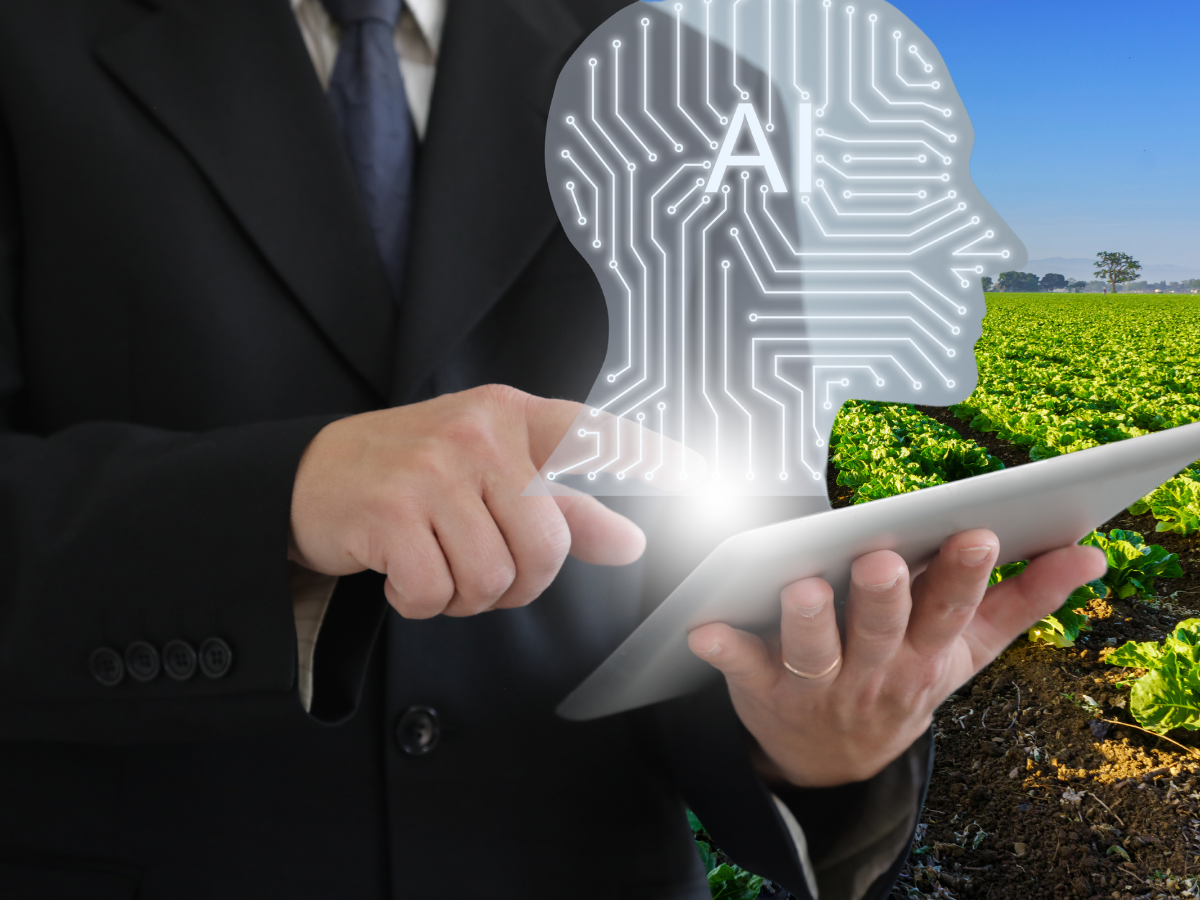The Role of AI in Modern Farming

Artificial intelligence (AI) is revolutionizing numerous industries, and agriculture is no exception. By integrating AI technologies, modern farming is becoming more efficient, productive, and sustainable. This blog explores the various applications of AI in agriculture, including predictive analytics, crop health monitoring, and automated machinery, and highlights how these innovations are transforming farming practices in the UK.
Predictive Analytics for Weather Forecasting and Crop Management
One of the most impactful applications of AI in agriculture is predictive analytics. AI algorithms analyze vast amounts of data from various sources, such as weather patterns, soil conditions, and historical crop performance, to provide accurate predictions and actionable insights.
For example, AI-powered weather forecasting tools can predict extreme weather events, such as droughts or floods, allowing farmers to take proactive measures to protect their crops. Additionally, AI can forecast optimal planting and harvesting times, helping farmers maximize yields and reduce losses. In the UK, companies like Agrimetrics are at the forefront of providing data-driven insights to farmers, enhancing decision-making and crop management.
Crop Health Monitoring with AI and Machine Learning
Monitoring crop health is crucial for ensuring high yields and quality produce. Traditional methods of crop monitoring can be time-consuming and labor-intensive. AI-powered tools, however, can automate this process and provide real-time insights into crop health.
Machine learning algorithms analyze images captured by drones or satellites to detect early signs of disease, pest infestations, or nutrient deficiencies. These algorithms can identify patterns and anomalies that may not be visible to the naked eye. For instance, AI can detect subtle changes in leaf color or texture, indicating the onset of a disease. Farmers can then apply targeted treatments, reducing the need for widespread pesticide use and minimizing environmental impact.
Automated Machinery and Robotics
AI-driven automation is transforming agricultural machinery, making farming operations more efficient and less labor-intensive. Autonomous tractors, harvesters, and planting machines equipped with AI capabilities can perform tasks with precision and consistency.
Autonomous tractors, for example, can navigate fields using GPS and sensor data, ensuring accurate planting and minimizing soil compaction. AI-powered harvesters can identify and pick ripe fruits and vegetables, reducing labor costs and increasing harvest efficiency. In the UK, companies like Small Robot Company are developing robots that can plant, monitor, and care for crops autonomously, promising to revolutionize the future of farming.
Smart Irrigation Systems
Water management is a critical aspect of sustainable farming. AI-powered smart irrigation systems optimize water usage by analyzing soil moisture levels, weather forecasts, and crop water requirements. These systems can automatically adjust irrigation schedules and amounts, ensuring that crops receive the right amount of water at the right time.
In the UK, where water conservation is becoming increasingly important, smart irrigation systems can help farmers reduce water waste and improve crop yields. AI-driven solutions like Arable and CropX provide real-time data and analytics to support efficient water management.
Enhancing Livestock Management with AI
AI is also making significant strides in livestock management. AI-powered sensors and monitoring systems can track animal health, behavior, and environmental conditions in real-time. For example, wearable devices can monitor vital signs, detect signs of illness, and alert farmers to potential health issues.
AI algorithms can also analyze feeding patterns and optimize nutrition plans to ensure livestock receive balanced diets. This not only improves animal welfare but also enhances productivity and reduces feed costs. In the UK, companies like Smartbell are developing AI solutions to monitor and manage livestock more effectively.
Benefits and Challenges
The integration of AI in modern farming offers numerous benefits. It enhances productivity by optimizing resource usage, reduces environmental impact by minimizing chemical inputs, and improves decision-making through data-driven insights. Additionally, AI can help address labor shortages by automating labor-intensive tasks.
However, the adoption of AI in agriculture also presents challenges. High initial costs and the need for technical expertise may be barriers for some farmers. There are also concerns about data privacy and security. To overcome these challenges, government support, training programs, and collaborations between tech companies and farmers are essential.
AI is transforming modern farming, making it more efficient, sustainable, and resilient. By leveraging predictive analytics, crop health monitoring, automated machinery, and smart irrigation systems, farmers can optimize their operations and improve yields. In the UK, the adoption of AI technologies is helping to address the challenges of modern agriculture and ensuring a sustainable future for the sector. As AI continues to evolve, its impact on farming will only grow, paving the way for a new era of agricultural innovation.






